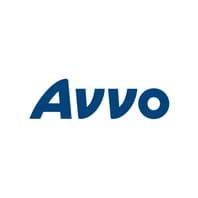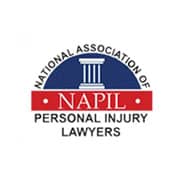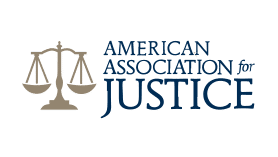After a crash with an Uber or Lyft, who pays? Is it the driver? The multi-billion-dollar company? Their insurer? Your own?
This is a question that complicates everything. Rideshare accidents involve huge corporations, multiple insurance policies, and teams of lawyers whose incentive is to minimize their own liability. While you are trying to heal, you are suddenly faced with a confusing financial puzzle and a pile of medical bills.
If you were hurt in a rideshare accident in Tulsa, one thing is clear: Oklahoma law gives you the right to seek payment for your injuries and other losses. A Tulsa rideshare accident lawyer at Carr & Carr Injury Attorneys can help you navigate this process. Your job is to get better, and our job is to handle the rest.
The way forward may seem unclear, but you do not have to deal with it by yourself. Call Carr & Carr Injury Attorneys at (918) 747-1000 for a free, no-pressure conversation about your case.
Why Choose Carr & Carr Injury Attorneys?

Your energy should be spent on one thing: healing. Our team takes on the legal process so you are able to focus on your health and family. We see our role as lifting a weight from your shoulders, giving you the space and peace of mind to recover.
How We Handle Your Case:
- A Straightforward Conversation: It all begins with a free case review where we listen to what happened. We’ll assess the facts and explain your options. There is no cost and no obligation.
- You Pay Nothing Unless We Win: We operate on a contingency fee basis. This means you owe us no attorney’s fees unless we successfully recover money for you.
- Direct and Personal Communication: Your case will not get lost in a stack of files. You will have direct contact with our team, and we will make ourselves available to answer your questions clearly and simply. We believe in keeping you informed every step of the way.
- Easily Accessible Location: Our Tulsa office is located at 4416 S Harvard Ave, easily accessible off the I-44.
How Much Is My Tulsa Rideshare Accident Case Worth?
The goal of a legal claim is to provide you with financial stability after an accident, covering every loss the crash created. A fair settlement or verdict must account for the full range of your damages, both the ones you see now and those you will face in the future.
Compensation is typically broken down into three main types:
Economic Damages
These are the tangible, provable costs. Our firm will meticulously document these expenses to build a complete demand for reimbursement.
- All medical costs (emergency room visits, surgery, physical therapy, future treatments)
- Lost income from being unable to work
- Reduced earning capacity if your injuries impact your career long-term
- Damage to your vehicle or other property
Non-Economic Damages
These losses are just as real but lack a clear price tag. They are meant to acknowledge the human cost of the accident—the ways it has rewritten your daily life.
- Pain and suffering (both physical pain and emotional distress)
- Emotional anguish and mental turmoil
- Loss of enjoyment of life (the inability to engage in hobbies or daily activities)
Punitive Damages
In rare situations where the at-fault party’s behavior was exceptionally reckless or malicious, Oklahoma law allows for punitive damages. These are not designed to pay you back for a loss but to punish the wrongdoer and discourage similar conduct.
Where Do Rideshare Accidents Happen in Tulsa?
Rideshare drivers spend their time in the most congested parts of the city, which naturally heightens the risk of a collision. In a recent year, Tulsa County saw nearly 8,000 crashes, with many resulting in injuries. These incidents often happen in high-traffic areas and at dangerous intersections where a moment of distraction could have serious consequences.
Common Tulsa Accident Locations:

- The Broken Arrow Expressway (The “BA”): The BA is a major site for accidents, especially at crossings like Memorial Drive and Sheridan Road, due to heavy traffic and constant merging. The intersection at Memorial Drive has been the scene of countless injury-causing wrecks.
- 71st Street: As one of Tulsa’s main commercial arteries, intersections along 71st Street, particularly at Mingo Road and Memorial Drive, are frequent accident sites. The area is packed with stores, a high school, and a hospital, creating a steady flow of traffic.
- U.S. Highway 169: Intersections along US-169 at 41st, 51st, and 71st streets are known trouble spots, mixing high-speed highway drivers with local commuters. The junction at East 21st Street and US-169 has a particularly high rate of injury crashes.
Crash Factors in Tulsa:
- Time and Day: Accidents in Tulsa happen most often on Fridays and during the evening rush hour.
- Common Causes: Driver negligence is a leading cause of wrecks across Tulsa, including speeding, distracted driving (such as using a GPS or the rideshare app), and driving under the influence.
Your Rights in a Tulsa Rideshare Accident
What sets rideshare cases apart is the insurance issue. The available coverage hinges entirely on what the driver was doing at the exact moment of the crash. This is a detail we will investigate and manage for you, making sure the claim targets the correct policy to maximize your recovery.
The Core Issue: Layers of Insurance
The three scenarios that dictate coverage are:
- Driver is Offline: If the driver is not logged into the Uber or Lyft app, their personal car insurance is the primary coverage. The claim proceeds like a standard car accident case.
- Driver is Logged In & Waiting for a Request: Once a driver is online and available, a lower level of liability coverage from the rideshare company becomes active. Oklahoma law requires certain minimums in this phase.
- Driver is En Route or Has a Passenger: From the moment a ride is accepted until the passenger exits the vehicle, the rideshare company’s commercial insurance policy is in effect. This policy covers liability and may also provide uninsured/underinsured motorist protection.
Common Types of Rideshare Accidents

The pressure to complete trips quickly sometimes leads to preventable mistakes. Some of the most frequent collisions we see include:
- Rear-End Collisions: Common in stop-and-go traffic, these are often caused by drivers looking at the app instead of the road ahead.
- Sideswipe Accidents: These frequently happen on multi-lane roads like the BA Expressway or US-169 when drivers change lanes without checking their blind spots.
- Intersection Accidents: A large number of crashes occur at intersections, often because a driver runs a red light or fails to yield while turning.
Common Injuries We See
Even a seemingly minor crash could cause injuries with lasting effects. We frequently handle cases involving:
- Whiplash and Soft Tissue Injuries: These neck and back injuries are common even in low-speed wrecks and may not show symptoms for days.
- Head and Brain Injuries: A forceful impact can cause a concussion or a more serious traumatic brain injury, altering everything from memory and focus to mood and personality.
- Broken Bones: Fractures to the arms, legs, and ribs are common and could demand surgery, casts, and lengthy rehabilitation.
- Spinal Cord Injuries: In the most severe cases, these injuries could lead to permanent mobility challenges, rewriting every part of a person’s life.
How Rideshare Companies and Insurers May Approach Your Claim
Rideshare companies and their insurers are businesses. Their goal is to resolve claims for the lowest amount possible. This puts them in direct conflict with your need for fair payment to cover your medical care, lost income, and pain.
What We Watch Out For
- Shifting Blame: An insurer might argue you were partly at fault to lower your claim’s value. They do this by using Oklahoma’s modified comparative negligence rule, which may prevent or reduce your recovery if you are found more than 50% responsible.
- Quick, Low Settlement Offers: You may get an offer soon after the crash. This is often a strategy to close the case before you know the full extent of your injuries and financial losses.
- Questioning Your Injuries: The insurer may demand an “independent” medical examination (IME) with a doctor they select. These exams are sometimes used to minimize the severity of your injuries and justify a denial or a low offer.
- Using Your Words Against You: A claims adjuster may ask for a recorded statement, hoping you will say something that weakens your case. It is always best to speak with a lawyer before giving any recorded statement to an insurance company.
What You Should Do to Protect Your Claim After an Accident

While we manage the legal work, there are things you should do from home to strengthen your case.
- Follow Your Doctor’s Orders: Adhere to your treatment plan, go to all follow-up appointments, and fill your prescriptions. This will help create a clear, official record of your injuries.
- Keep a Pain Journal: Each day, write down a few notes about your pain levels, physical struggles, and how the injuries affect your life. Doing this ensures details are kept solid and provides powerful evidence later.
- Track All Expenses: Keep every bill, receipt, and invoice related to the accident in one folder. This includes medical co-pays, prescription costs, and even gas mileage for trips to the doctor.
- Get the Official Police Report: This report is a foundational document. It’s the first rough draft of the truth, containing details about the drivers, vehicles, and the officer’s initial assessment of fault.
- Stay Off Social Media: It is wise to avoid posting about the accident, your injuries, or your activities. Insurers will use photos and posts out of context to argue you are not as hurt as you claim. A picture from a family event could be used to question your pain, even if you were only able to stay for fifteen minutes.
Frequently Asked Questions About Tulsa Rideshare Accidents
What if the at-fault driver was from another state?
This does not substantially change your rights. Because the accident occurred in Oklahoma, Oklahoma law will generally govern the claim. We handle the process of dealing with out-of-state drivers and their insurance companies, so you do not have to manage those communications.
Do I have a case if I was a passenger and my own rideshare driver was at fault?
Yes. As a passenger, you have the right to file a claim for your injuries, no matter which driver was to blame. If your driver caused the wreck, the claim would be directed to the rideshare company’s commercial insurance policy, which exists specifically to cover these situations.
What happens if the at-fault driver has no insurance, or it was a hit-and-run?
This is where uninsured/underinsured motorist (UM/UIM) coverage is so important. If you were a passenger in a rideshare vehicle, the company’s $1 million policy likely includes this coverage to protect you. It acts as a safety net when the at-fault driver can’t be found or lacks the insurance to pay for your losses.
How long do I have to file a rideshare accident lawsuit in Oklahoma?
For most personal injury cases in Oklahoma, the statute of limitations is two years from the date of the accident. While that might sound like a long time, building a strong case means gathering evidence quickly before it vanishes and witness memories fade. It is always better to act sooner rather than later.
I was driving my own car and a rideshare driver hit me. Who do I file a claim against?
You would file a claim against the rideshare driver. Which insurance policy applies—the driver’s personal one or the company’s commercial policy—depends on the driver’s app status when the crash happened. We would investigate this key detail to identify the correct source of payment for your damages.
Let Carr & Carr Injury Attorneys Handle the Details

After a rideshare accident, you need a clear way forward. You need someone to manage the insurance claims so you can focus on your recovery. Our team at Carr & Carr Injury Attorneys is here to provide that guidance. An experienced Tulsa personal injury lawyer from our team will handle the paperwork, the phone calls, and the negotiations, letting you put your energy where it belongs.
For a free and confidential discussion about your Tulsa rideshare accident, call us today at (918) 747-1000.
Carr & Carr Injury Attorneys – Tulsa Office
Address: 4416 S Harvard Ave, Tulsa, OK 74135
Contact No: 866-510-0580

